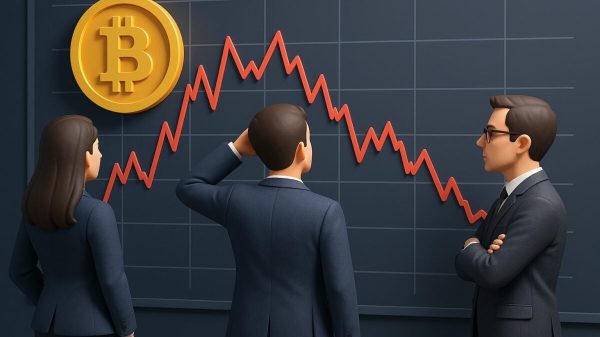Navigating Credit Downgrades in Oil: A Complex Challenge
In a rapidly changing global landscape, oil and gas companies find themselves at the forefront of a looming financial storm. The fossil fuel industry as a whole is confronting the impending threat of credit downgrades, primarily due to its slow adaptation to a low-carbon future. A recent analysis by Fitch, a leading credit ratings agency, has highlighted the substantial vulnerability of oil and gas companies to climate risks, particularly stringent emissions regulations. This article delves into the key findings of Fitch’s report. It explores the challenges and opportunities facing the gas oil industry as it grapples with the need for swift transformation.
The Climate Risk Landscape
Fitch’s extensive analysis reveals a concerning trend – more than a fifth of global corporations from diverse sectors face a substantial risk of credit rating downgrades due to their elevated climate vulnerability over the next decade. A staggering 50% of these at-risk issuers belong to the oil and gas sector, with coal and utilities also identified as highly exposed to the risk of downgrades.
Surprisingly, over half of the global companies at risk of climate-induced credit downgrades currently hold investment-grade ratings. This fact underscores the gravity of the situation. It emphasises the urgent need for a comprehensive and rapid response to climate risks in the oil and gas industry.
The Impending Peak Oil Dilemma
The International Energy Agency predicts that global demand for gas oil will reach its zenith within this decade. However, some experts warn that the peak may arrive even sooner. The Inevitable Policy Response, a forecasting group whose data contributed to Fitch’s analysis, suggests that peak oil could materialise by 2025, leading to a staggering 60% decline in demand over the following 25 years.
The magnitude of this projected demand slump is immense, raising significant concerns about the industry’s capacity to adapt. Sophie Coutaux, the head of ESG (Environmental, Social, and Governance) for corporate ratings at Fitch, describes this situation as a “very big number” and emphasises the substantial challenge that lies ahead for industry players. The critical question arises: Can oil and gas producers adapt swiftly enough to avert the impending crisis?
Diversifying in the Age of Uncertainty
Recent geopolitical events, such as the war in Ukraine, have resulted in energy crises, driving fossil fuel prices higher. This temporary surge in cash flow has encouraged major gas and oil corporations to focus on their core business, enriching shareholders through buybacks and expanding within their sectors through acquisitions.
Nevertheless, the once-outsize profits in the fossil fuel industry are showing signs of fading. BP Plc, for instance, witnessed a decline in its share price due to weak gas earnings, and the prospect of oil reaching $100 per barrel, which had been anticipated by some analysts, now appears more remote.
Murray Auchincloss, BP’s interim CEO, acknowledges the need for a significant shift in the company’s focus. He suggests that earnings growth during this decade must increasingly originate from clean energy rather than the oil and gas side.
The Urgent Need for Emissions Reductions
To address the climate crisis, many major oil and gas companies are banking on future emissions reductions through carbon capture technology, which is still in development. However, Fitch warns that time may be running out for some in the industry to develop and implement feasible emissions-reduction plans.
While some investment-grade issuers have initiated investments in low-carbon initiatives, the pace of change needs to accelerate, Coutaux asserts. The transition towards cleaner energy sources is no longer a distant future but a pressing necessity.
Navigating Climate Risk in Credit Ratings
The credit ratings industry has encountered considerable difficulty in integrating climate risk into its models, leaving fixed-income investors to navigate this new landscape largely on their own. An ongoing debate within major rating firms centres on the best approach to address this challenge, with many stakeholders emphasising the need for swift action.
The consequences of climate risk are already manifesting in credit ratings. Researchers at the European Central Bank have identified a greater deterioration in the credit ratings of companies exposed to climate transition risk compared to those adapting more rapidly. This effect is particularly pronounced in Europe, where aggressive climate regulations are gaining traction.
Embracing Change for a Sustainable Future
In response to the pressing need for action on climate change, rating agencies like S&P Ratings are increasingly incorporating climate risk into their models. Regulatory and policy risks are identified as key factors affecting a company’s credit profile. Additionally, the physical impacts of extreme weather events are already triggering credit rating downgrades.
On a global scale, alliances are forming to demand substantial reductions in fossil fuel production, positioning climate change at the centre of the debate.
The gas oil industry faces a critical juncture. The need to adapt to a low-carbon future is not just a matter of sustainability; it is increasingly becoming a financial imperative.
The post Navigating Credit Downgrades in Oil: A Complex Challenge appeared first on FinanceBrokerage.


































